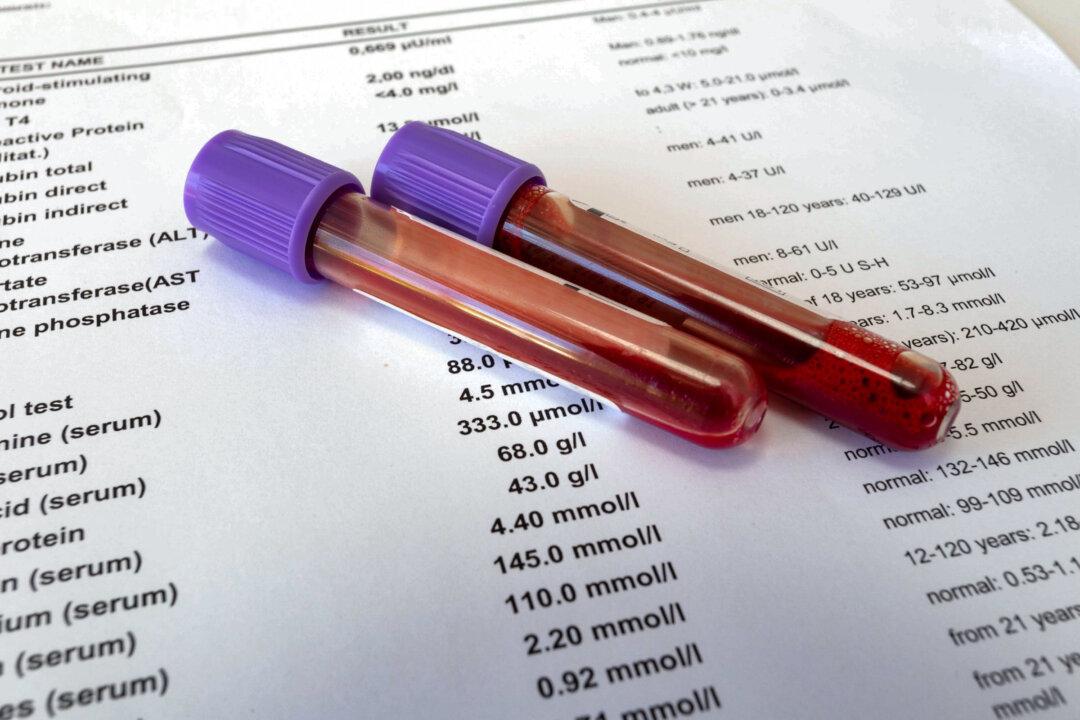Have you been told your “bad cholesterol” is too high? Maybe you’ve been prescribed a class of drugs called statins, which are designed to lower your LDL—low-density lipoprotein—also known as “bad cholesterol.”
Part of the confusion about heart disease seems to stem from the lack of a replacement candidate for cholesterol to be the bad guy. Pharmaceutical intervention requires a specific process to act on. A drug is researched for its ability to affect a single symptom and then promoted for that effect. Heart disease is more multidimensional than this business model allows for.
Why Cholesterol Is a Red Herring
Cholesterol is a hugely important substance in the human body, found in every cell and needed to maintain the integrity of cell membranes. Your most vital hormones are synthesized from cholesterol. It is essential in the proper functioning of your brain and nervous system and is nature’s repair substance—used to repair any micro-tears in vessels including your arteries.The analysis is relevant at lower levels though, and highlights that LDL scores are more heavily influenced by genetics than diet. It also highlights the far more important role of lipoprotein (a), or Lp(a), levels in your risk for heart attacks and strokes than your LDL. There are no pharmaceutical drugs approved to reduce Lp(a).
Two of the main conclusions reached by the BMJ analysis were that “there is no evidence to support the recommendation that FH individuals should consume a low saturated fat, low cholesterol diet” and that “a low carbohydrate diet (LCD) significantly improves cardiovascular disease biomarkers, compared with a low fat diet.”
The Real Culprits in Heart Disease
While sugar and simple carbohydrates leading to insulin resistance are certainly part of the problem, it is not the only boogeymen in heart disease. It is the very complexity of the human body that seems to have led to a sort of paralysis among doctors and scientists who cannot definitively nail the exact cause and progression of heart disease—the biggest killer in the world. Rather than admit we don’t fully understand all the mechanisms and that living a healthy lifestyle is really what it takes to reduce your risks, it is easier to focus on cholesterol.Enter Dr. Malcolm Kendrick, a general practitioner, who, like Dr. Malhotra, hails from the British Isles and speaks openly about “The Great Cholesterol Con,” the title of one of his books. In his latest book, “The Clot Thickens: The Enduring Mystery of Heart Disease,” Dr. Kendrick outlines in great detail the most plausible explanation for heart disease available, complete with helpful illustrations, extensive scientific references, and a heavy dose of humor.
Smoking, on the other hand, makes a big difference, as does having diabetes. Some of the other factors that increase your risk include kidney disease, having rheumatoid arthritis or lupus (an autoimmune disease), a history of migraines, severe mental illness, and taking steroid medication. It is Dr. Kendrick’s investigation into why these seemingly unrelated factors all cause heart disease that is the core of the narrative.
Although the book is written like a great detective novel, the plot is not spoiled by revealing that the punch line is blood clots. Despite the complexity of the elements and mechanisms involved, the answer turns out to be quite simple. As Dr. Kendrick says, “it is not structure or function but ‘process’ that links [the risks for heart disease].” We know that a heart attack is caused by a blood clot in the coronary artery and that a stroke is a blood clot in the arteries leading to the brain.
The mystery is understanding what causes the blood clots.
Dr. Kendrick introduces us to the endothelium (the lining of your blood vessels), explaining that “a healthy and undamaged endothelium is all that is needed to prevent harmful substances ... entering the artery wall” as well as the glycocalyx (the slippery substance that covers and protects the endothelium), or as Dr. Kendrick calls it, “the super Teflon of the natural world.”
When the glycocalyx is damaged, it exposes the endothelium. If the endothelium is damaged, your body rushes in with a temporary plug—a blood clot—until endothelial progenitor cells can come and replenish it. The blood clot can then dissolve and the glycocalyx reform. Problems arise if the damage is happening faster than the repair process can be completed.
One of the most interesting explanations in the book is the role of steroid medications (such as prednisone) that are used extensively to dampen down the immune system in various autoimmune diseases. Dr. Kendrick explains, “It is important to understand the extremely chemical connection between all steroids and cortisol. As a result of this, they have almost identical adverse effects on the human body.”
So the connection can be seen between emotional or physical stress, which raises our cortisol levels, and the damage done to the lining of our blood vessels. In both cases, the steroid causes glucose to be released from the liver (to ensure we have the energy to tackle the expected emergency), but this results in too much sugar circulating in the blood, leading to insulin resistance.
How to Reduce Your Risks
1. Watch Your Diet
As you’ve likely heard time and again, you are what you eat. Food is medicine. Focus on clean whole foods that are God-made, not man-made. Reduce sugars including simple carbohydrates such as bread and baked goods. Eliminate processed foods that are full of unnatural vegetable and seed oils as well as added sugars. Healthy natural fats promote heart health—including nuts and avocados as well as pasture-raised animals fed their natural diet rather than corn.2. Manage Your Stress
Finding ways to relax, such as reading, meditation, taking up a new hobby, spending time with friends, getting more involved in service work, or religious practices that take the focus off yourself and put it onto something bigger, are all good solutions. Getting seven to eight hours of sleep a night is also important.3. Take Care of Any Chronic Infections
Many people are walking around with undiagnosed infections such as Lyme disease, parasites, mold spores, or any number of viruses hiding out in their cells. Your mouth is the biggest culprit, with low-grade periodontal disease all too common from decaying teeth and gums. Visit the dentist regularly.4. Daily Movement and Exercise
Even beyond stress relief, exercise can help manage your blood sugar and strengthen your immunity. It also helps keep your blood flowing and reduces the risk of blood clots.5. Get Out in the Sun
In addition to synthesizing vitamin D in your skin (which boosts your immunity among many other positive factors), sunlight has been shown to help the body synthesize nitric oxide, which lowers your blood pressure and helps prevent blood clots. It has also been shown to improve insulin resistance, which protects the endothelium.6. Drink Plenty of Pure Water
Water is critical to the optimal functioning of every cell in your body. It helps flush toxins out, lubricates your joints, carries oxygen to your cells, and facilitates all the electrical activity including your heart-beat and nervous system. Dehydration can cause your blood to coagulate and lead to blood clots. In addition to whatever else you are drinking, make sure to include eight 8-ounce glasses of water daily.7. Use Natural Supplements Whenever Possible
Here’s just a sample of inexpensive supplements that have been shown to reduce your risks of heart disease through various mechanisms:- As mentioned above, niacin helps to reduce Lp(a) and has a range of other health benefits.
- Berberine is as effective, or more so, than the drug Metformin at lowering blood glucose.
- Glucosamine, together with chondroitin sulfate, is often taken to improve the symptoms of arthritis through its action on cartilage. There is also strong evidence that it has a similar beneficial action of repairing the endothelium and hence lowers the risk for heart disease.
- Magnesium is a critical mineral for the correct functioning of the heart and a common deficiency in the Western world. This has been highlighted in Israel, where there is a high use of desalinated water. One study found an increased risk for ischemic heart disease for those who relied on desalinated drinking water with its absence of magnesium and other minerals. Another study found the risk of dying from a heart attack was higher in areas of the country using desalinated water.
- Nattokinase, a natural enzyme found in natto, a cheese-like food made from fermented soybeans, has been found to have significant fibrinolytic activity, essentially breaking down blood clots and enhancing blood flow.






